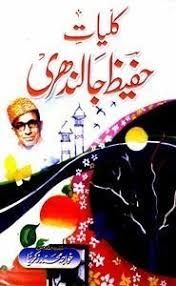Muhammad Hafiz, born in 1900 in Jalandhar, had a natural inclination towards poetry and literature from a young age. His journey as a poet began under the tutelage of Maulana Ghulam Qadir Garami, where he honed his skills and embarked on a path that would eventually establish him as a prominent figure in Urdu poetry.
His magnum opus, the ‘Shahnama-e-Islam,’ stands as a testament to his literary prowess. While Persian literature boasts epics like Ferdowsi’s ‘Shahnameh’ and Maulana Rumi’s ‘Masnavi,’ Hafiz’s ‘Shahnama-e-Islam’ fills a void in Urdu literature. Maulana Hali lamented the absence of such epic poetry in Urdu, but with the publication of Hafiz’s work, this grievance seemed to dissipate to a considerable extent.
Crafting poetic narratives around historical events, especially those intertwined with religion and national sentiments, is a daunting task. Straying too far from authenticity risks alienating readers, while adhering strictly to facts might result in a lackluster narrative. Hafiz manages this balance adeptly in his lengthy composition, presenting events with vivid detail without sacrificing the allure of storytelling. Critics acknowledge the distinct absence of dryness and prosaic elements in his work. Instead, ‘Shahnama-e-Islam’ is peppered with numerous passages that stir the reader’s religious fervor and evoke a sense of spiritual awakening.
While Hafiz also dabbled in ghazals, they often adopt a conventional style, occasionally lacking the profound impact seen in the works of poets like Ghalib. While his verses resonate with intense melancholy, at times, they seem detached, failing to evoke a personal connection with the reader.
In addition to ghazals, Hafiz ventured into composing nazms, several collections of which have been published, such as ‘Naghma-e-Raz’ and ‘Sooz-o-Saaz.’ While lacking in philosophical depth, his nazms captivate through their eloquent style. Employing traditional meters and employing sweet, melodious language, Hafiz transforms his compositions into sources of joy and delight for his readers.
Hafiz’s versatility extends to his composition of songs, where his success lies in his ability to choose words that resonate deeply with listeners. Themes such as the sailor of a broken ship and the horseman of Karbala stand out prominently, adding layers of emotion and resonance to his compositions.
In conclusion, ‘Muhammad Hafiz Jalandhary’ celebrates the contributions of a poet who not only revived the tradition of epic poetry in Urdu but also enriched its literary landscape with his profound narratives and melodious verses. Despite certain shortcomings in his ghazals, Hafiz’s nazms and songs continue to captivate audiences, ensuring his enduring legacy in Urdu literature.”
To Get Kulliyate-e-Hafiz Jalandhary, Kindly click here:

